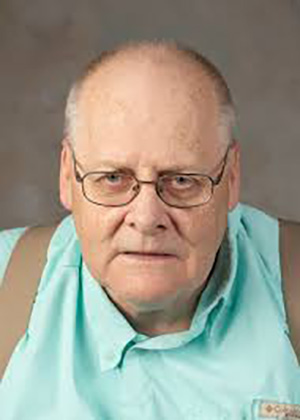OPINION —
Maybe 10 years ago, I bought an old copy of “Not So Wild a Dream.” I knew about Eric Sevaraid’s 1946 book on his life growing up in North Dakota and Minnesota and his travels as a young journalist. Knowing of his eloquent commentaries on CBS in the 1960s and 1970s, I was delighted to find this book.
Inside, the book was signed by a well-known Lee-Countian: David Housel. He is director of athletics emeritus at Auburn University, having served as director of athletics from 2004 through 2006. He was the department’s sports information director, 1981 to 1994. Housel is an avid reader as well as an author. Those in younger generations might be astonished to hear that people routinely signed their own books. I explain why this tradition was popular until 20 or 30 years ago.
Writing our names in books is generally pegged to our childhood. Children scribble their names so they don’t get mixed with those of their friends. My mother, I recall, was not upset when I signed my name to books. But she was perturbed when I scrawled my name on the kitchen walls.
A website called Bookswritten notes that youngsters don’t want to lose their books, because they will need them in class.
“A teacher, a senior or another friend could easily identify the owner of the lost book and return it,” said writer D’ipanjenah Ali.
Another motivation for people to sign their books is they enjoy labeling and personalizing. It is often a reflection of old habits. It distinguishes your ownership. As one woman described it, “I stopped writing my name on books ever since I stopped lending them out. But I like my books personalized.”
“I just hate spoiling my book, apart from academic texts of course,” said Sparsh Mudgat of Ghaziabad, India. “But no, never will write my name on any book. It is just weird. We had enough of that in school. I think now is the time we move past that habit (signing or spilling something on the pages).”
Eric Sevareid wrote “Not so Wild a Dream,” the book that Auburn’s David Housel put his signature to. He was one of a group of elite war correspondents hired by CBS newsman Edward R. Murrow. Sevareid was the first to report the Fall of Paris in 1940, after the city was captured by German forces in World War II.
Sevaraid presented beautifully written commentary from 1963 (I was 7) to 1977 (I was 21). He was sometimes disparagingly called “Eric Several Sides” but I learned the importance of being an “honest broker” instead of a divisive advocate. In 2017, T. Harrel Allen, a professor of communication at East Carolina University published a promising book, “The Voice of Reason: Eric Sevaraid’s CBS Commentaries”. It is available online.
In his final CBS essay, Severaid said, “The goal has been to elucidate when one can rather than advocate, to remember that the public is only persons, no two alike. Also to remember that ignorant and biased reporting has a counterpart in ignorant and biased reporting.” Maybe 10 years ago, I bought an old copy of “Not So Wild a Dream.” I knew about Eric Severaid’s 1946 book on his life growing up in North Dakota and Minnesota and his travels as a young journalist. Knowing of his eloquent essays on CBS in the 1960s and 1970s, I was happy to find this book.
In the early 2000s, I came upon an academic book, “Out of silence and darkness: the history of the Alabama Institute for Deaf and Blind, 1858-1983.” The coauthors were Robert Hill Couch and Jack Hawkins, Jr. of Troy University. The book was signed by Couch’s wife Helen Gibbs Daniel Couch. She died in 2022 but had become a professional storyteller with a weekly television show.
I was glad to open the Sevaraid book and to see Housel’s name written in his handwriting. I was delighted that day five years ago when I found Gibbs Couch’s signature on her husband’s book. Other generations are likely to forget the intimacy of someone’s signature being in a book. But for now, I wonder if Housel signs his books from the Backbooth at Chappy’s Deli?
Greg Markley first moved to Lee County in 1996. He has masters degrees in education and history. He taught politics as an adjunct in Georgia and Alabama. An award-winning writer in the Army and civilian life, he has contributed to The Observer for 12 years. gm.markley@charter.net

